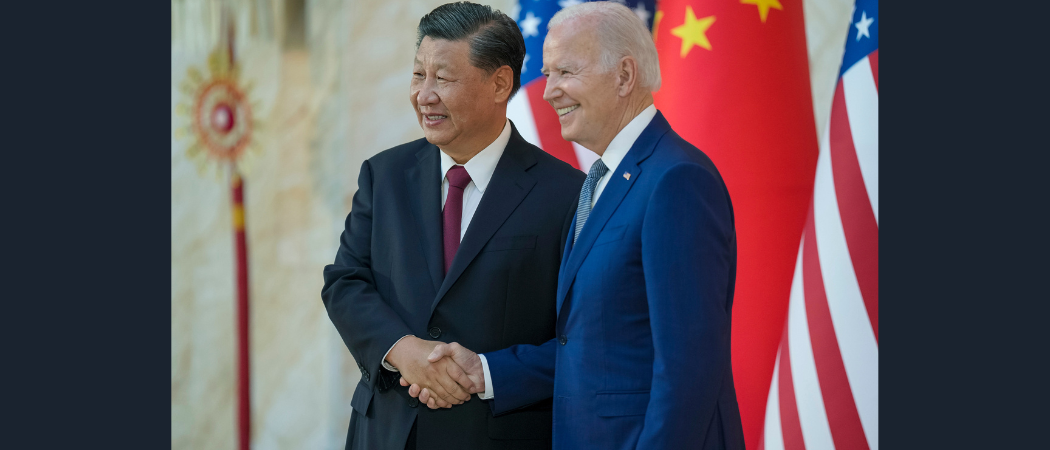China and the US have dialled down tensions, leading to a new agreement on alternative energy, and a promise to work together on the risks of artificial intelligence

US President Joe Biden meeting with Chinese President Xi Jinping in 2022. Photo: The White House / Flickr
Washington and Beijing have resumed a raft of environment-related collaboration measures, including promises of new support for Chinese and American universities to work together on recycling and resource efficiency.
Leaders Joe Biden and Xi Jinping met yesterday just outside San Francisco, slightly warming up a chilly relationship between the two powers and agreeing joint action in areas like arms control and the export from China of active pharmaceutical ingredients used to manufacture the opioid drug fentanyl.
But for researchers, the announcements on climate and environmental cooperation are of most importance. The US-China research relationship is one of the motors of global science, but has been under strain since 2020 due to rising geopolitical tensions between the two.
A planned working group on climate change was suspended by China in August 2022 in retaliation for a visit to Taiwan by House of Representatives speaker Nancy Pelosi. But earlier this week, the US and China agreed to restart the group, which among other things will “carry out information exchanges on policies, measures, and technologies for controlling and reducing emissions” and “identify and implement cooperative projects”.
The announcement includes specific encouragement for Chinese and US universities to work together, at least on certain topics.
Beijing and Washington will “conduct a policy dialogue” on how to encourage a circular economy and resource efficiency, and “support enterprises, universities, and research institutions of both sides to engage in discussions and collaborative projects,” the announcement said.
By 2030, the US and China will also launch at least five joint “large-scale” carbon capture and storage projects. There will also be “technical solutions exchanges” on how to limit methane emissions, another key greenhouse gas.
In addition, there is a commitment to encourage so-called “subnational cooperation” between US and Chinese cities, states and provinces, in greening the power, transport, buildings and waste sectors.
The agreement was the outcome of meetings in Beijing in July and California earlier this month between the US and Chinese climate envoys John Kerry and Xie Zhenhua.
“The two leaders underscored the importance of working together to accelerate efforts to tackle the climate crisis in this critical decade,” according to a White House readout of the Xi-Biden meeting.
AI cooperation
The two powers are also going to start talks about the risks of artificial intelligence. “The leaders affirmed the need to address the risks of advanced AI systems and improve AI safety through US-China government talks,” the White House said.
There a no concrete outcomes on AI just yet – just the promise to start working together. “We’re going to get our experts together to discuss risk and safety issues associated with artificial intelligence,” President Biden said in a press conference yesterday.
Both the US and China were earlier this month signatories of the Bletchley Declaration, a commitment by governments to work together on the runaway risks of advanced AI.
That agreement was brokered by the UK in an AI safety summit. However, if the US and China – whose tech firms own the world’s most powerful AI systems – start bilateral talks on safety, it’s unclear where this leaves the UK effort to coordinate AI governance, or indeed the various other international initiatives to regulate the technology.
In addition, in a speech to US business leaders yesterday, President Xi said China is ready to invite 50,000 young Americans to the country on exchange and study programmes over the next five years, although did not give any more details.





 A unique international forum for public research organisations and companies to connect their external engagement with strategic interests around their R&D system.
A unique international forum for public research organisations and companies to connect their external engagement with strategic interests around their R&D system.